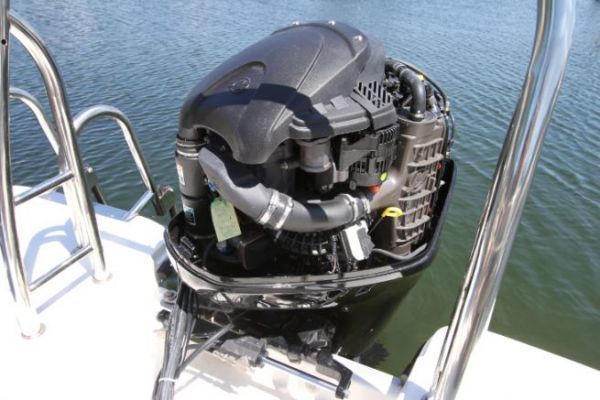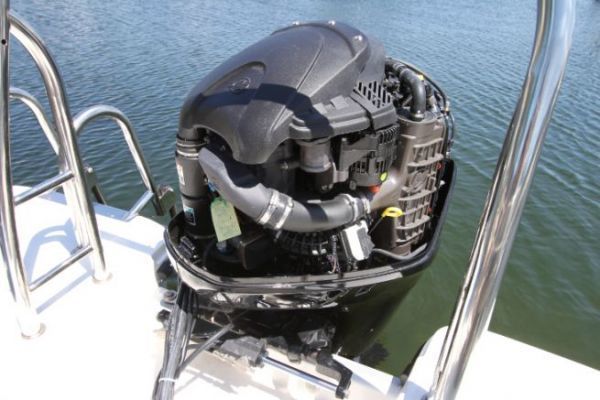Two-stroke engine
In the case of a two-stroke engine, the oil is mixed with the fuel and lubricates the engine as it circulates, and is burned during the operating process. This is the main reason why a two-stroke engine consumes more oil than a four-stroke engine. It's also why oil needs to be added regularly to a two-stroke engine, and in particular to a "classic" carburetor-driven two-stroke engine.

While the basic principle remains the same for direct-injection two-stroke engines, they use much less oil and, above all, burn a much smaller quantity of oil.

In addition to the above recommendations, viscosity and grade, two-stroke engines use a specific oil marked TC-W3 (Two-Stroke Cycle, Water Cooled Gasoline Engine Lubricant - Third generation oil) or TC-W4, which indicates that the oil complies with the international standard and is certified by the NMMA for this type of engine. TC-W4 is the most recent designation, offering greater engine protection and significantly improved performance.
Four-stroke engines
For a four-stroke engine, the principle is a little different. Oil is pumped into the crankcase and circulates through the engine to lubricate it, but is not burnt as it is in a two-stroke engine. As a result, oil consumption is lower than with a two-stroke engine.

Here again, apart from viscosity and grade criteria, an oil suitable for four-stroke engines can be recognized by the fact that it bears the FC-W (Four-Stroke Cycle, Water Cooled Gasoline Engine Lubricant), an NMMA certification.




















